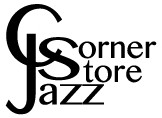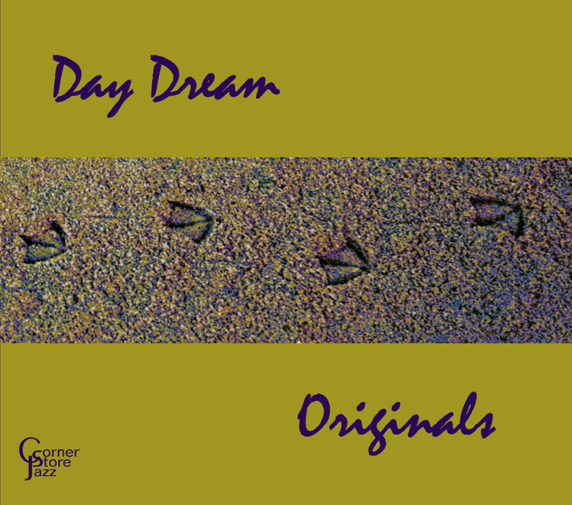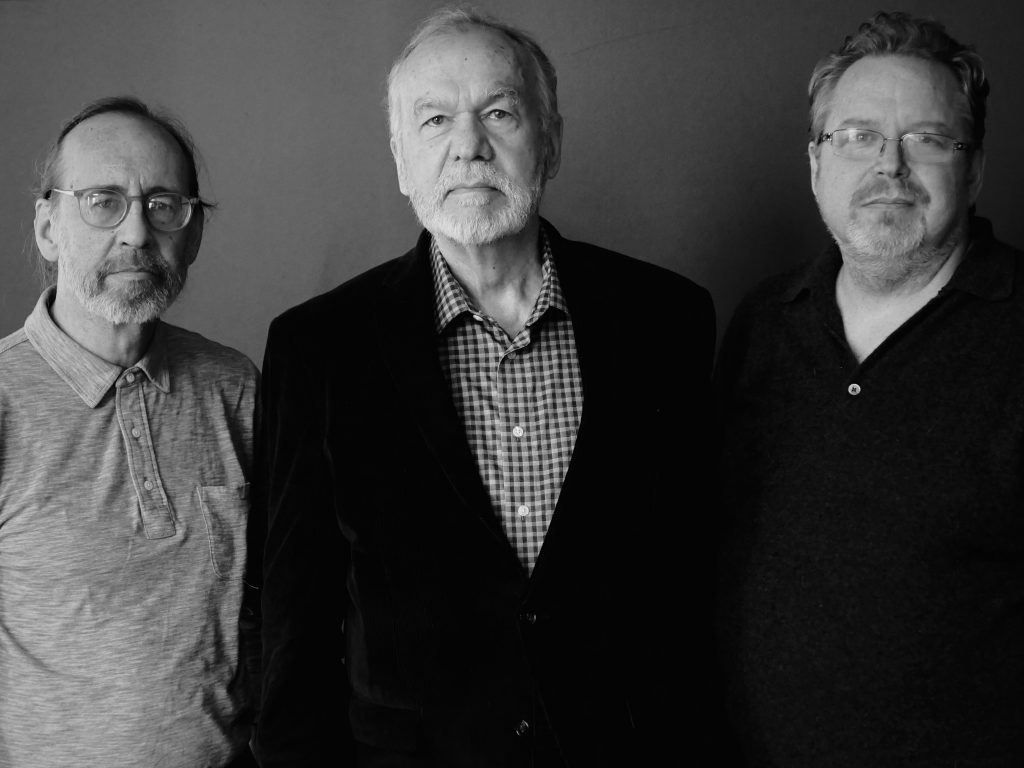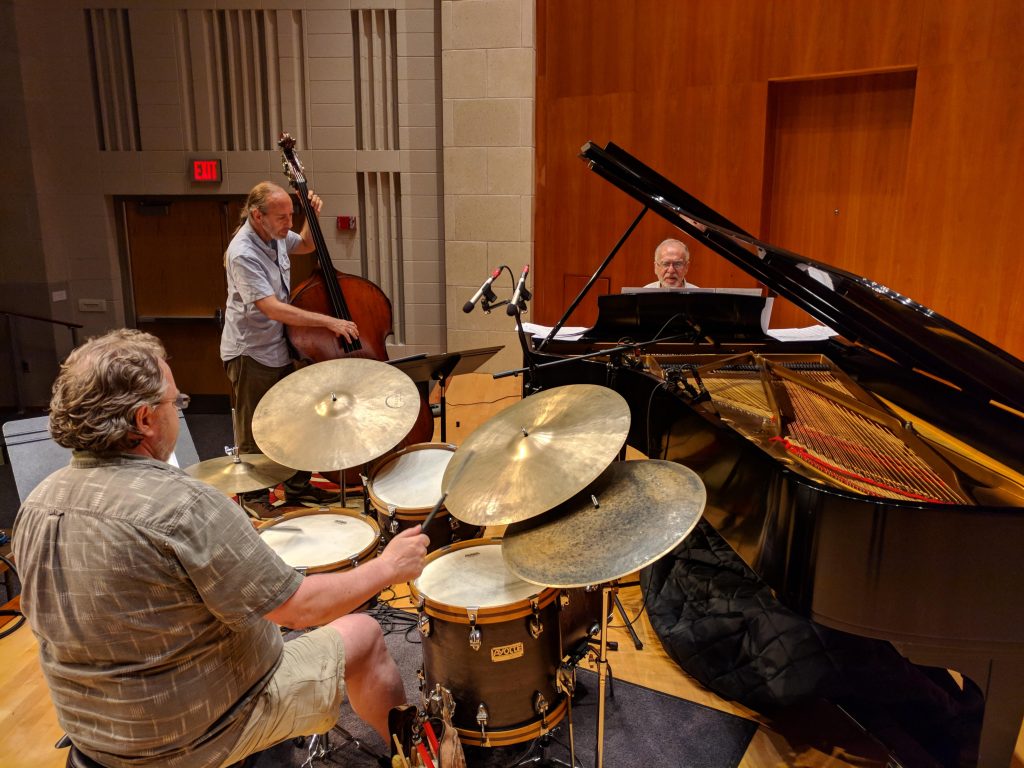Description
A daydream is a pleasant reverie, a momentary fancy, a brief escape allowing the mind to fly free of the stresses and doldrums of ordinary life. However fleeting, it’s the mind unshackled and basking in bliss.
For the members of the Day Dream trio, finding the opportunity to come together has proved far more challenging than simply wishing it so in a moment’s whimsy. Pianist Steve Rudolph, bassist Drew Gress and drummer Phil Haynes have convened exactly three times over the course of the last decade – each time, thankfully, captured for posterity. The first became their debut, Day Dream, a gorgeous, lyrical ballad date; the second, they supplied graceful backing for vocalist and songwriter Nick Horner’s album New Standards.
The results of their third meeting you now hold in your hands (or gaze upon via your screen, I suppose). The unadorned title, Originals, refers quite simply to its contents; as opposed to its predecessor, on which the trio explored aptly chosen standards, this session flows entirely from the pens of Messrs. Rudolph, Gress and Haynes. “The band had such great chemistry and such a beautiful sound the first time around,” Haynes says. “Drew’s dark sound, my sound and Steve’s touch go together in a distinctive way not common with piano trios. Compositionally, I wanted to see the band stretch a little bit, especially since everybody writes so beautifully.”
But, though each of them would likely demur from such claims, it also precisely describes these three stellar musicians, each of whom has honed a singular and distinctive voice untethered from dogmatic distinctions of genre or style.
How else to explain the uncanny chemistry shared by the trio? In part, it’s due to the deep relationships that underpin the group, which hinge on Haynes. He and Gress have worked together for well over three decades, dating back to their respective early days in New York City in the mid-80s. Haynes met Rudolph shortly after the turn of the millennium, when he uprooted himself to Central Pennsylvania.
“We have a very sympathetic approach to music,” explains Rudolph. “Phil and Drew are two of the best listeners I know. You have to really be in the moment and be able to react, and they’re about as good as it gets. I’ve had a lot of fun playing with them.”
But the uniqueness of the Day Dream configuration is due to the triangulation of three unique personalities and visions, which come across as clearly in the compositions on this album as through the playing of them. Rudolph brings an unparalleled elegance to the proceedings, a romantic disposition deep in emotion but free of sentimentality.
For the trio, their chosen sobriquet has more to do with Ellington (whose “Day Dream” they covered on the self-titled debut) than with wandering minds, but both meanings apply in equal measure: through Rudolph’s sensitive touch and inerrant, spare note choices they find mental possibilities open up, then cohere with the custom-tailored sophistication so associated with the iconic bandleader.
Gress has long been a bassist of choice for great pianists in search of a partner able to venture into wide-ranging regions, from whisper-quiet intimacy to blistering swing. He’s spent integral tenures alongside such masters as Fred Hersch, Marc Copland and Bill Carrothers, all of whom match harmonic profundity with tonal expansiveness. He’s also an ingenious composer, fond of crafting elaborate sonic architectures that can be challenging to navigate; in this case he brings comparable acuity to less constraining environments, sufficient to spark incisive musical conversation without constructing elaborate obstacles.
Haynes is an eclecticist by nature, with a prismatic curiosity that finds expression in unpredictable combinations – of approaches, of genres, of collaborators. He possesses a keen sense for concocting unlikely mixtures, suggesting that in a much earlier era he might have tried his hand at alchemy rather than music (or at the very least that he might mix a mean cocktail). Such is the case with his introduction of Gress and Rudolph, as well as the ways in which his pieces for the record create bridges between their respective sounds that prove deviously thorny, but thrillingly enjoyable, to navigate.
Together these disparate fashions complement each other perfectly. Rudolph’s refined agility doesn’t so much smooth out the rough edges of his more avant-tinged bandmates as gild them with delicate filigree. Gress’ harmonic experimentation creates windows in the music that open onto alluring, fathomless mystery. Haynes’ oblique strategies add a trenchant grit that subtly grounds the pervasive airiness.
“It’s just so easy to make music with Phil,” Gress says. “We’ve always had a really strong time hook-up; I love the sonic choices he makes and the spirit he plays from. And Steve is a really refined and mature player with his own, very subtle language. We’re all adults just following our ears and reacting without much of an agenda.”
The three make for an intoxicating and mesmerizing combination. From the crystalline opening notes of Rudolph’s solo spotlight “Zebra,” through the brusque angles of Haynes’ bewitching “Spell,” straight through the final swaggering swing of Gress’ buoyant “Let Fly,” the trio finds off-center beauty in unexplored corners and tense undercurrents flowing beneath displays of radiant joy. Let your mind roam for a moment in search of an elusive ideal of the piano trio sound; Originals might just prove to be a dream come true.
— Shaun Brady
Philadelphia, October 2019
All About Jazz review







